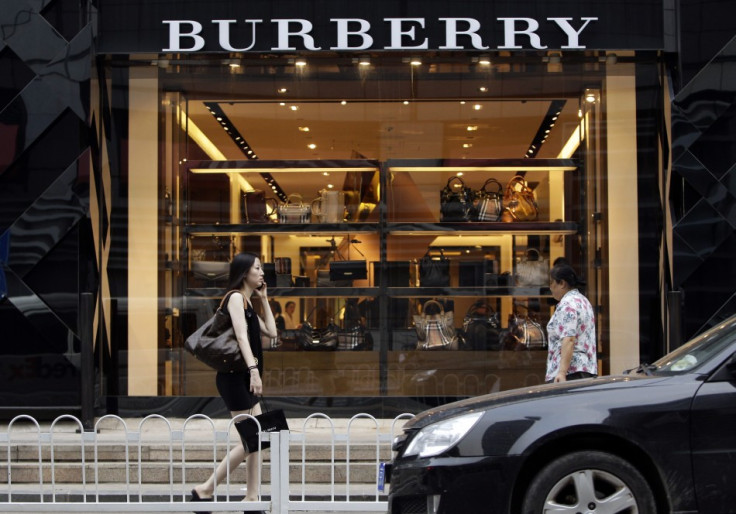London Fashion Week: Burberry Confident of Growth in Emerging Markets Despite Slowdown

British high-end retailer Burberry is confident that the emerging markets will continue to bolster growth despite a slowdown across a number of regions and China's crackdown on advertising for assorted luxury products.
Earlier in the year, Beijing banned banquets, alongside television and radio advertisements for expensive goods such as watches, wine and gold coins in a bid to check wanton government spending amid slowing economic growth.
Meanwhile, uptake for luxury goods in emerging markets, such as Brazil, has slowed due to economic decline in recent years, following the financial crisis. Growth in China, the world's second largest economy, is expected to hit a 23-year low this year.
Nevertheless, Burberry remains committed to investing in emerging market economies, said the company's Chief Executive Angela Ahrendts.
"We're not changing our strategy at all. Steady wins the race and...we're still very focused on investing for growth in the developing markets and in the brand. Strategy-wise, absolutely nothing has changed," said Ahrendts at London Fashion Week.
Ahrendts said the entire industry was affected by China's crackdown on luxury goods. However, "Burberry was the only one that was transparent about it."
"It's the new normal and we've budgeted for it....I think that people forget that in the next year 100 million consumers will exit that country and travel to flagship markets all over the world. That's why we've been investing in flagship stores across developing markets so that we can service them better," Ahrendts added.
Asian Influence
The Asia-Pacific region accounts for a little over a third of Burberry's business. The group has 469 stores worldwide, almost a half of which are located in the Asia-Pacific.
The 157-year-old firm, known for its camel, red and black checked pattern and classic trench coats, also sells its goods through 64 franchisee-operated stores.
Burberry reported a jump in underlying retail revenue for the three months ended 30 June 2013, beating expectations, as consumers in Asia and the Americas bought more of its luxury merchandise.
For 2013, the company forecast a modest increase in its normalised retail and wholesale margin from last year's 17.1%. By comparison, LVMH Moet Hennessy Louis Vuitton, the world's leading luxury goods company, reported an operating margin of 21% last year.
Burberry's stock has gained about 32% so far this year valuing the London-headquartered firm at about £10.72bn (€12.77bn , $17.05bn).
© Copyright IBTimes 2025. All rights reserved.






















